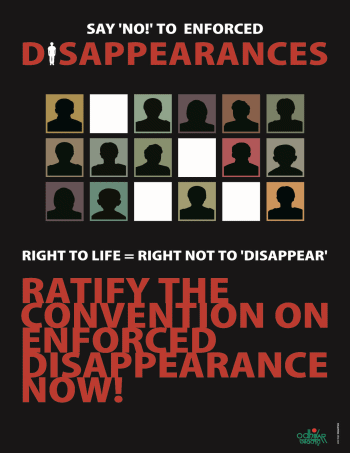The International Federation for Human Rights (FIDH) fact-finding mission’s mandate was to enquire on the death penalty and the administration of criminal justice in Bangladesh, with a focus on people convicted for so-called terrorist offences. The principal objective was to assess the respect of the fair trial guarantees, in particular the prohibition of torture, in capital cases. The mission also attempted to look at the specific situation of persons suspected of having committed so-called terrorist offences, and determine whether there are specificities in terms of criminal procedure or practices in their regard, that contravene international human rights law.
An extremely broad range of crimes currently attracts the death penalty in Bangladesh. FIDH and Odhikar also note grave problems with the administration of criminal justice and the procedures of law enforcement. The ability of officers to arrest individuals suspected of so-called cognizable offences without a warrant violates the right not to be subjected to arbitrary arrest and detention. The trial system appears to be imbued with violations of due process and presumption of innocence principles. Severe delay and backlog in the court system reportedly drags cases on for years, which is especially pernicious for those held for non-bailable offences or for those who could not afford bail.
The Anti-Terrorism Act (ATA grants extraordinarily broad powers to the government, often violating the fundamental rights of its citizens. The ATA’s grant of broad rights of surveillance to law enforcement and restrictions upon freedom of speech are further cause for concern.
Bangladesh has the legal obligation to ban torture in its domestic law. However, torture is not defined under its criminal law, as is required by the CAT. The Bangladesh Constitution allows parliament to pardon public officials accused or convicted of torture while the Code of Criminal Procedure requires prior governmental approval before a complaint of torture can be lodged against a political officials.
The report consists of 8 parts:
- Introduction
- Bangladesh and international human rights law
- The death penalty in Bangladesh
- The administration of criminal justice
- Terrorism
- Torture
- Conclusions and recommendations
- Appendices: status of international human rights treaties, declarations/reservations on treaties, leading cases on death penalty, persons met by the FIDH/Odhikar mission
publication-criminal justice-2010-eng (full text in English, PDF)




